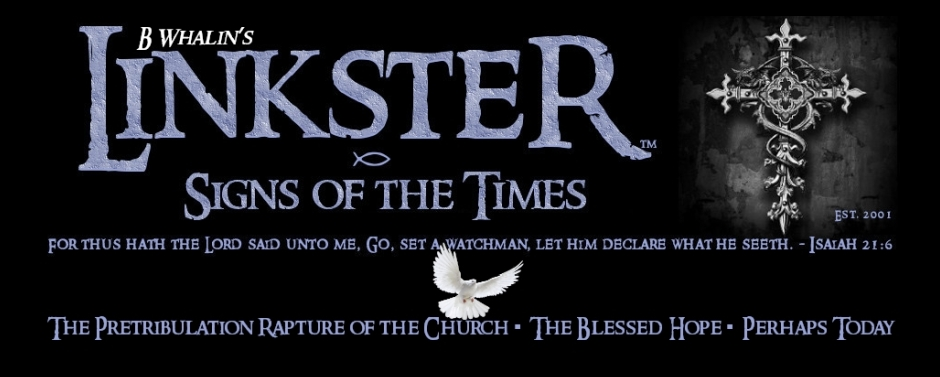
Judge Rules Agony Of Baby 'Impermissible' In Drafting Abortion Legislation

 Michael Carl, WND — A federal judge has struck down parts of an Idaho law granting legal protection to some unborn children and limiting the gestational age at which babies can be aborted, saying that the provisions of the law include “an impermissible purpose and an impermissible effect.”
Michael Carl, WND — A federal judge has struck down parts of an Idaho law granting legal protection to some unborn children and limiting the gestational age at which babies can be aborted, saying that the provisions of the law include “an impermissible purpose and an impermissible effect.”The National Right to Life Committee, however, said in a statement the decision actually paves the way for the U.S. Supreme Court to weigh in: “A federal district court decision against the Idaho Pain-Capable Unborn Child Protection Act issued March 7, 2013, opens the way to an ultimate consideration by the United States Supreme Court whether mounting medical evidence that unborn children are capable of feeling pain supports a compelling state interest allowing protection of such children from abortion.”
The case began when eastern Idaho resident Jennie Linn McCormick sued Bannock County, Idaho, after County Prosecutor Mark Hiedeman charged her with a felony crime for self-inducing a medicinal abortion on her child, which an autopsy determined was between five and six months gestation. McCormack was charged with an unlawful abortion after the baby’s body was found in a box on her back porch.
In a press statement, McCormick’s lawyer, Richard Hearn, says he’s pleased with Federal District Judge Lynn Winmill’s decision.
“It’s not just the fetal pain laws. It’s that fetal heartbeat law in Arkansas, too. Picking a pre-viability date to ban abortions is unconstitutional,” Hearn said. “It’s as though legislatures all across the country are saying, ‘We don’t really care. We’re just going to do it anyway in the face of the Constitution.’ Thankfully Winmill put a stop to that in Idaho.”
National Right to Life Committee Director of State Legislation Mary Balch says Idaho needs to act to defend life and its own laws.
“It is our hope that the attorney general of Idaho would appoint a special attorney general to defend the case and I would send him the link to the Doctors on Fetal Pain website to learn more about the pain of the unborn child,” Balch said.
“Judge B. Lynn Winmill (a Clinton appointee) held that the bill had both an impermissible purpose and an impermissible effect,” Balch said. “The judge considered the governmental interest in potential life, but rejected it, asserting that at all pre-viability measures must be designed to make the mother more informed.
“He considered the state’s interest in promoting maternal health,” Balch continued, “and ruled that this did not apply since the primary purpose of the bill was to protect a ‘fetus’ capable of feeling pain, and not to protect the mother.”
Liberty Counsel attorney Steve Crampton agrees with Balch’s assessment. Current legal precedent favors the side of a woman seeking an abortion even though there is substantial evidence that preborn babies feel pain.
“[There is] much evidence to support the proposition that the unborn feel pain as some of the National Right to Life links and resources amply demonstrate,” Crampton said. “The problem is that given the rule of Roe v. Wade and its progeny, the courts don’t much care about this evidence. In effect, the ‘right’ of the mother to ‘terminate her pregnancy’ having been deemed ‘fundamental,’ the courts disregard evidence of fetal pain as being essentially irrelevant.”
In the same way that the courts disregard evidence of unborn children feeling pain, Balch says the courts also refuse to consider the interest of the states.
“Judge Winmill’s opinion did not analyze whether the government has a separate and legitimate interest in protecting an unborn child capable of feeling pain – instead his analysis was based on prior Supreme Court precedent,” Balch said.
The judge’s opinion further read, “An outright ban at or after 20 weeks’ gestation places, not just a substantial obstacle, but an absolute obstacle, in the path of women seeking such abortions.”
“Judge Winmill struck down other provisions in the Idaho law,” Balch noted, “such as 18-606, which requires a physician to do the abortion (undue burden); 18-608(1), which requires first-trimester abortions to be performed in a properly staffed and equipped office and that the abortionist make ‘satisfactory’ arrangements with a nearby hospital (vagueness); and 18-608(2), which requires second-trimester abortions to be done in a hospital (impermissible burden).”
The National Right to Life Committee believes that they will lose in the Ninth Circuit Court of Appeals, the court that legal scholars say is the most liberal of the judicial circuits.
Crampton agrees, “It is virtually guaranteed that the Ninth Circuit will rule against them. That is why NRLC says they will appeal to the Supreme Court after the Ninth Circuit rules.”
“These cases will make inroads on forcing recognition of the other person involved in every abortion, but they will not actually end abortion,” Crampton added. “They should help to further weaken the case for abortion, though, and so are certainly worth following.” » Full Article
» WND
» Michael Carl Article Archive
About the Author
Michael Carl is a veteran journalist with overseas military experience and experience as a political consultant. He also has two Master's Degrees, is a bi-vocational pastor and lives with his family in the Northeast United States.
Other Breaking News Items On WND
» Muslim Jihadists Execute Foreign Hostages
Follows attack designed 'to wipe Christians out of this part of Nigeria'
» Heartland Patriots: The Key To Bucking Tyranny
Exclusive: Patrice Lewis has faith when riots begin, the unbrainwashed will stand firm
» Senators Aim To Protect Vets' Gun Rights
Bill proposed to require proof they would be a danger


